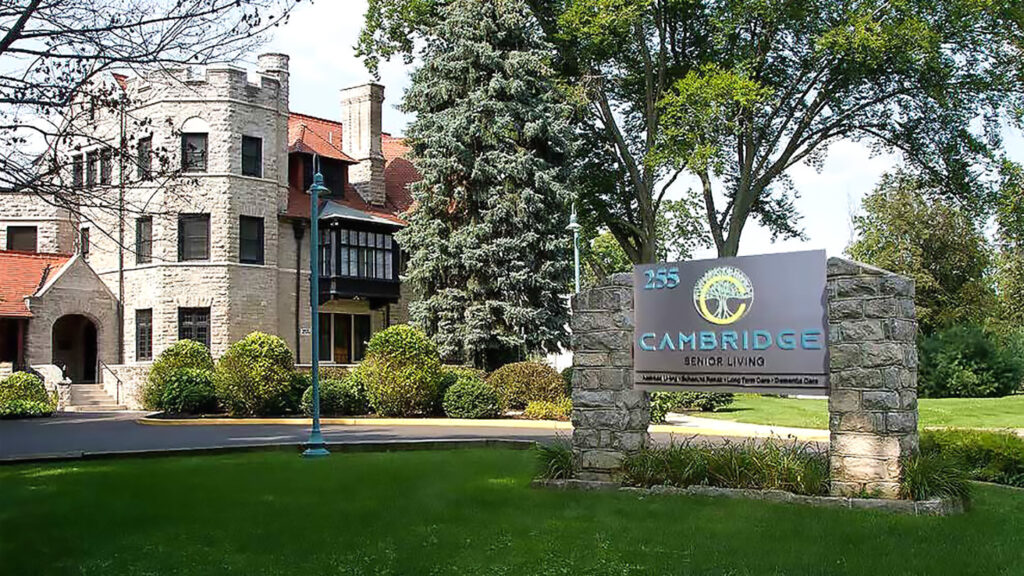
A senior living healthcare consultant went “back to basics” with the rollout of a person-centered memory care neighborhood model that standardizes its approach to care delivery, practice and management.
Marquis Health Consulting Services expanded its branded healthcare suite with Journeys Memory Care, a person-centered memory care neighborhood model.
Each neighborhood must meet the new care model’s standards and criteria, which include benchmarks for the physical space, evidence-based care delivery, caregiver experience and education, state-specific life enrichment programming and dining. The model has been adopted in 18 Marquis communities — six senior living communities and 12 skilled nursing facilities.
“The Journeys Memory Care model enables our client skilled nursing centers and assisted living communities to take their secure memory care neighborhoods to the next level, further advancing their regional leadership in caring for individuals with dementia diagnoses,” said Jennifer Hertzog, Marquis vice president of marketing and business development, Mid-Atlantic.
The model supports resident physical, emotional, cognitive and social needs, enabling them to remain high-functioning and independent in a secure environment. Memory care residents have access to psychology and psychiatry services, family support services, and rehabilitation and cognitive therapies. Life enrichment offerings include a variety of therapeutic activities, including art, music, sensory activities, reminiscence therapy and intergenerational programming.
‘Everyone is part of the program’
Marquis Director of Memory Care Jean Krautzel told McKnight’s Senior Living that the Journeys program is another venture into specialized programming for its communities. The Journeys program aligns itself with the Alzheimer’s Association dementia care practice recommendations and Centers for Medicare & Medicaid Services best practices, as well as the various state standards of practice in the states within which Marquis operates.
“The Journeys program is meeting the standards of practice as it relates to environment, clinical care delivery, education, family support and community education,” Krautzel said. “We really are making sure we’re ticking all of the boxes so we are providing the highest level of care in keeping not only with regulatory compliance, but with best practices.”
Krautzel said even the name, Journeys, was deliberate as Marquis considers the residents it serves.
“Their life is a journey. It doesn’t end with a diagnosis of Alzheimer’s,” Krautzel said. “They are continuing to follow their life story and journey.”
“Team members are trained to communicate through validation, with understanding and compassion as they support residents through the journey each day,” Hertzog told McKnight’s Senior Living.
Journeys-designated memory care neighborhoods are led by certified dementia practitioners and physicians. Anyone who interacts in any way with residents — including housekeeping, maintenance, culinary and direct care staff members — receives training in a 12-part dementia basics education series.
“We have a saying that everyone is a part of the program,”Krautzel said. “Our housekeeping aides going in to clean a resident’s room — they need to know how to communicate with that resident; they need to know the disease process to engage with residents.”
Training incorporates experiential virtual dementia training, which includes the physical, emotional and sensory effects of dementia to best prepare staff members on how to care for those living with the disease.
“Marquis went back to the basics in the development of the Journeys model, focusing on how best to communicate, engage and care for those with Alzheimer’s or related dementia,” Krautzel said. “This is not about fluff. It’s a whole-team approach to help meet residents where they are, creating more meaningful moments for both them and their loved ones.”
The company rolled out the program last year, and it has been well-received by staff and families, Krautzel said. Some employees who don’t work in the dedicated memory care units are asking to move into those roles, she added, “because of all the good things going on.”
“In the long-term care environment, where we have so much going on in a day, staff are appreciative to have the knowledge base,” Krautzel said. “We are training them, giving them the knowledge and tools to do their job in a more effective way.”


